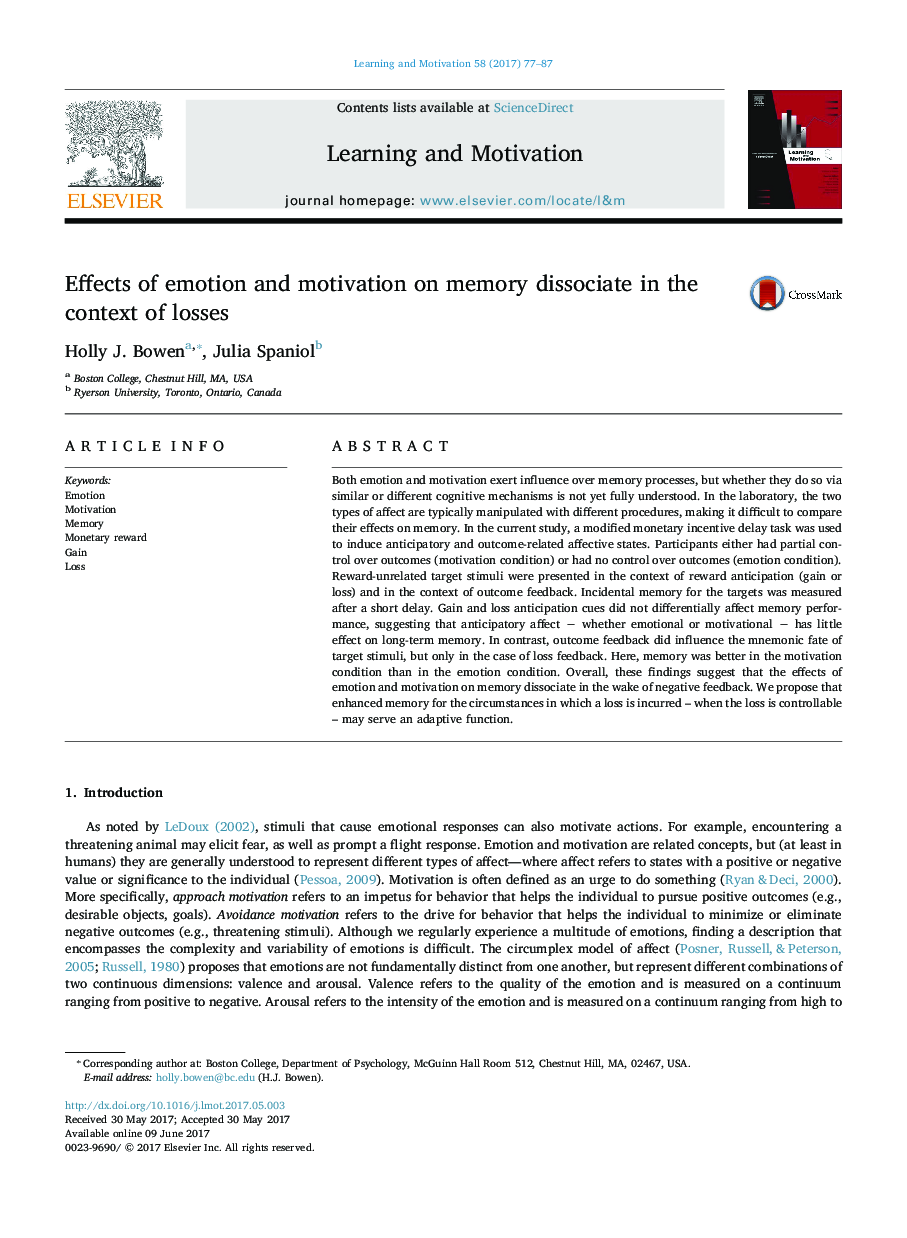| کد مقاله | کد نشریه | سال انتشار | مقاله انگلیسی | نسخه تمام متن |
|---|---|---|---|---|
| 5040113 | 1473510 | 2017 | 11 صفحه PDF | دانلود رایگان |

- Using monetary rewards, emotion and motivation effects on memory are compared.
- Manipulated control (motivation) or no control (emotion) over monetary outcomes.
- Feedback after a controllable loss led to better memory than after an uncontrollable loss.
- Effects of controllable losses on memory may serve an adaptive function.
Both emotion and motivation exert influence over memory processes, but whether they do so via similar or different cognitive mechanisms is not yet fully understood. In the laboratory, the two types of affect are typically manipulated with different procedures, making it difficult to compare their effects on memory. In the current study, a modified monetary incentive delay task was used to induce anticipatory and outcome-related affective states. Participants either had partial control over outcomes (motivation condition) or had no control over outcomes (emotion condition). Reward-unrelated target stimuli were presented in the context of reward anticipation (gain or loss) and in the context of outcome feedback. Incidental memory for the targets was measured after a short delay. Gain and loss anticipation cues did not differentially affect memory performance, suggesting that anticipatory affect â whether emotional or motivational â has little effect on long-term memory. In contrast, outcome feedback did influence the mnemonic fate of target stimuli, but only in the case of loss feedback. Here, memory was better in the motivation condition than in the emotion condition. Overall, these findings suggest that the effects of emotion and motivation on memory dissociate in the wake of negative feedback. We propose that enhanced memory for the circumstances in which a loss is incurred - when the loss is controllable - may serve an adaptive function.
Journal: Learning and Motivation - Volume 58, May 2017, Pages 77-87